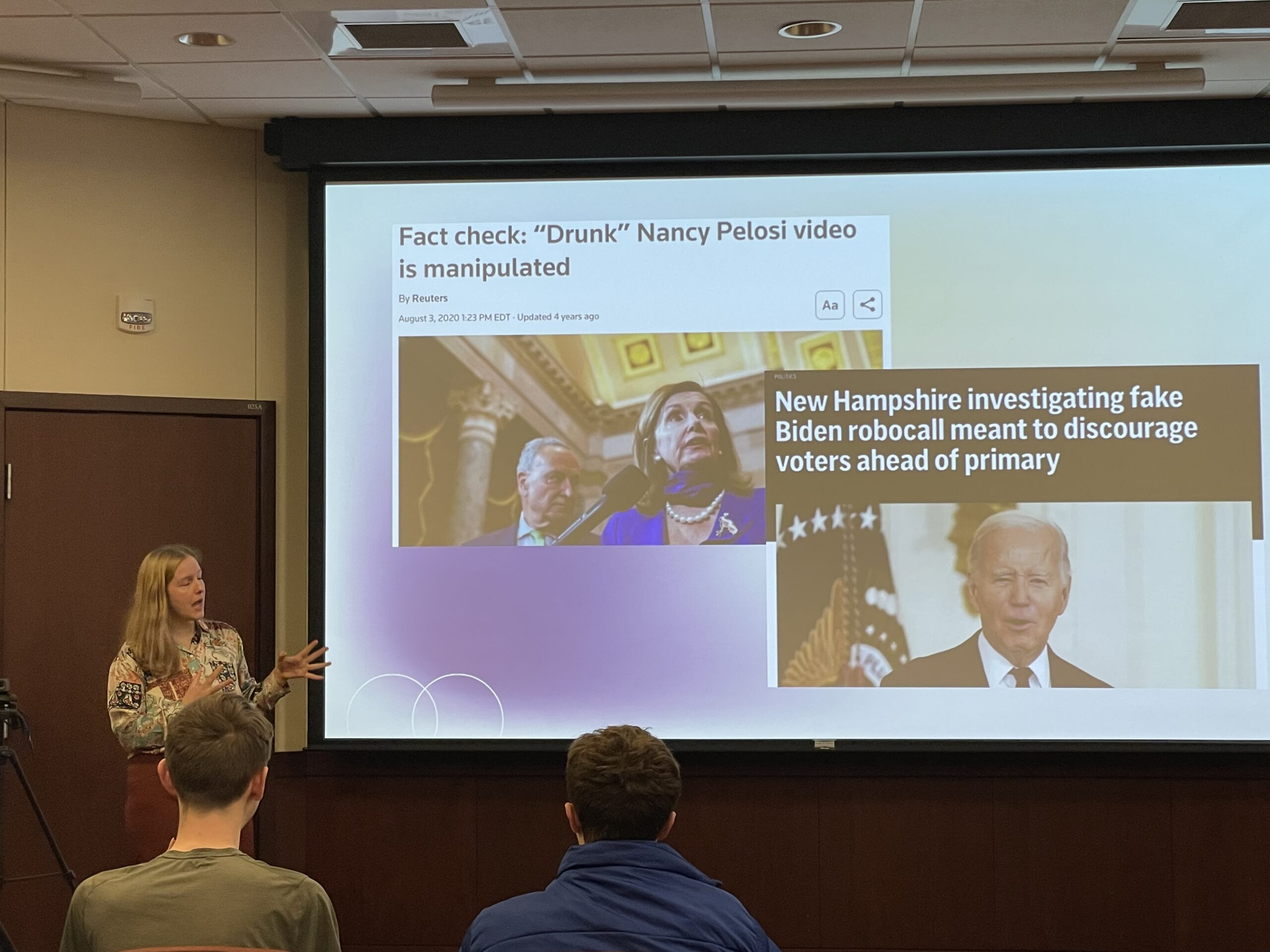On Monday, March 17, guest lecturer Dr. Alzbeta Hajkova argued in favor of using deepfakes as political tools.
An assistant professor of Philosophy from the University of West Georgia, Dr. Hajkova presented her research on political philosophy based on the political theory of Hannah Arendt. Her research focused specifically on the digital altering of audio and video, often used to spread disinformation.
“Given that deepfakes are already out there, how can we make these tools ethical?” she asked.
In her presentation, Hajkova explained the debate about using deepfakes, acknowledging the power of deepfakes to undermine the power of evidentiary knowledge online.
But, she compared using deepfakes to historical examples of doctored photos and said the digital age has created a new outlet for altering media. “Deepfakes are a contribution to a larger phenomenon of post-truth media,” she said.
Hajkova argued that deepfakes can be used to misrepresent a candidate’s view, but they were exaggerated and overt in the 2024 presidential election. “Essentially, they were memes,” she said.
In her thesis, Hajkova argued that “open, self-authorized and exaggerated deepfakes can be useful instruments of political action, especially in contexts where traditional forms of political action are not possible for various reasons.” Deepfakes can be tools of positive political action from her perspective.
An open deepfake refers to the difference between open and closed deepfakes. Open means that the digitally altered speaker of the video or audio is addressing an audience, such as a public service announcement or phone call, while closed means the speaker is in a private setting such as an interview or private conversation.
Hajkova offered the example of a Russian documentarian using deepfakes to protect the identity of LGBTQ+ interviewees in Chechnya, Russia, which reminded the audience why deepfakes would be a necessary political message.
In this case, the overt use of doctored media reminds an audience why the creator needed to use a deepfake to create their content. Hajkova argued that being in a dangerous or physically impossible position to make a political statement would be a reason to use an open deepfake, as long as its use is consensual.
Hajkova conceded that politicians can use deepfakes to spread disinformation under this argument, but she argued that this is true of any political tool.
“Our social and digital identities are very connected to our sense of human dignity,” she said. “If we consent to a deepfake of ourselves, then political deepfakes are no different from other forms of political speech.”

